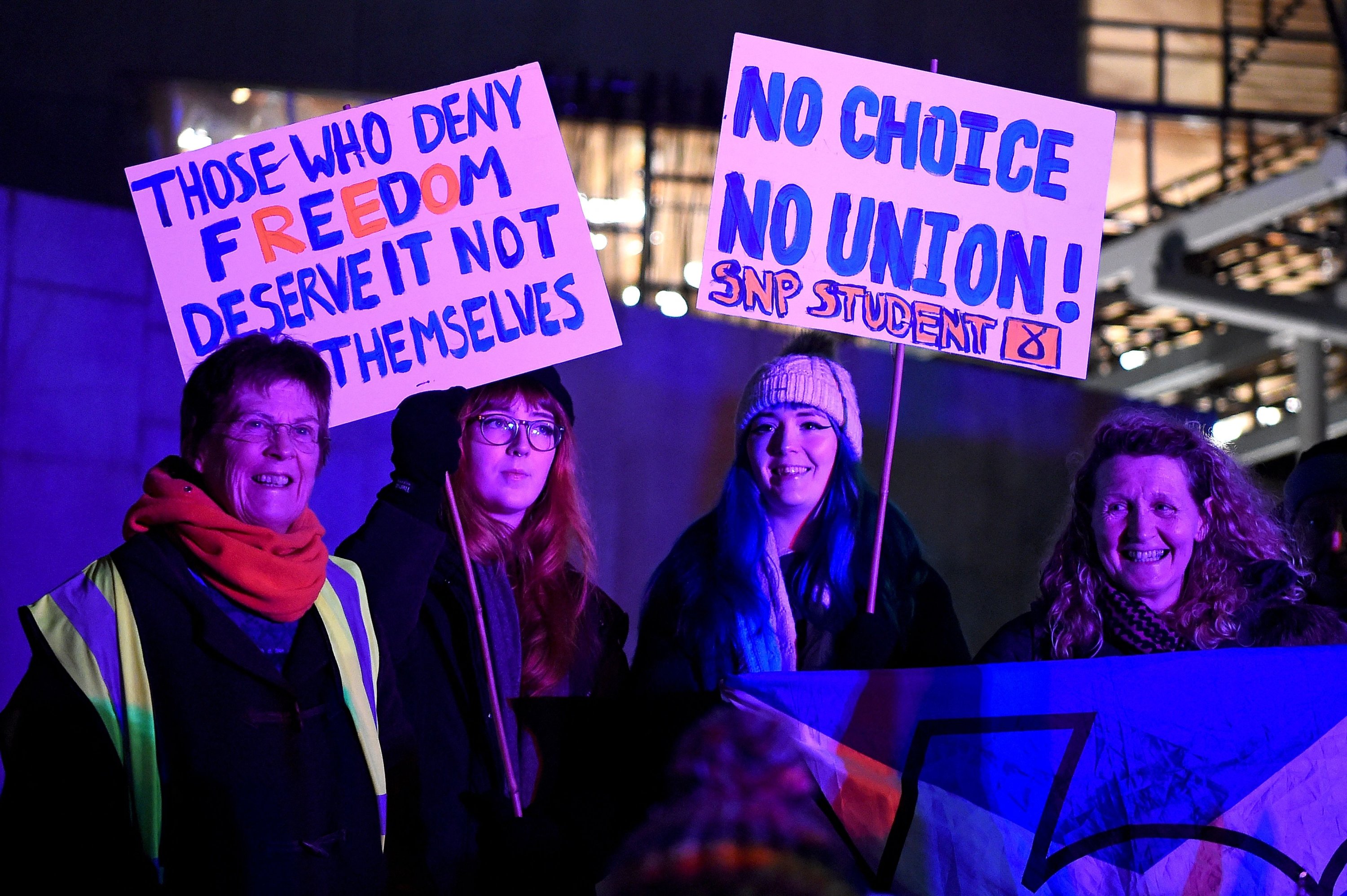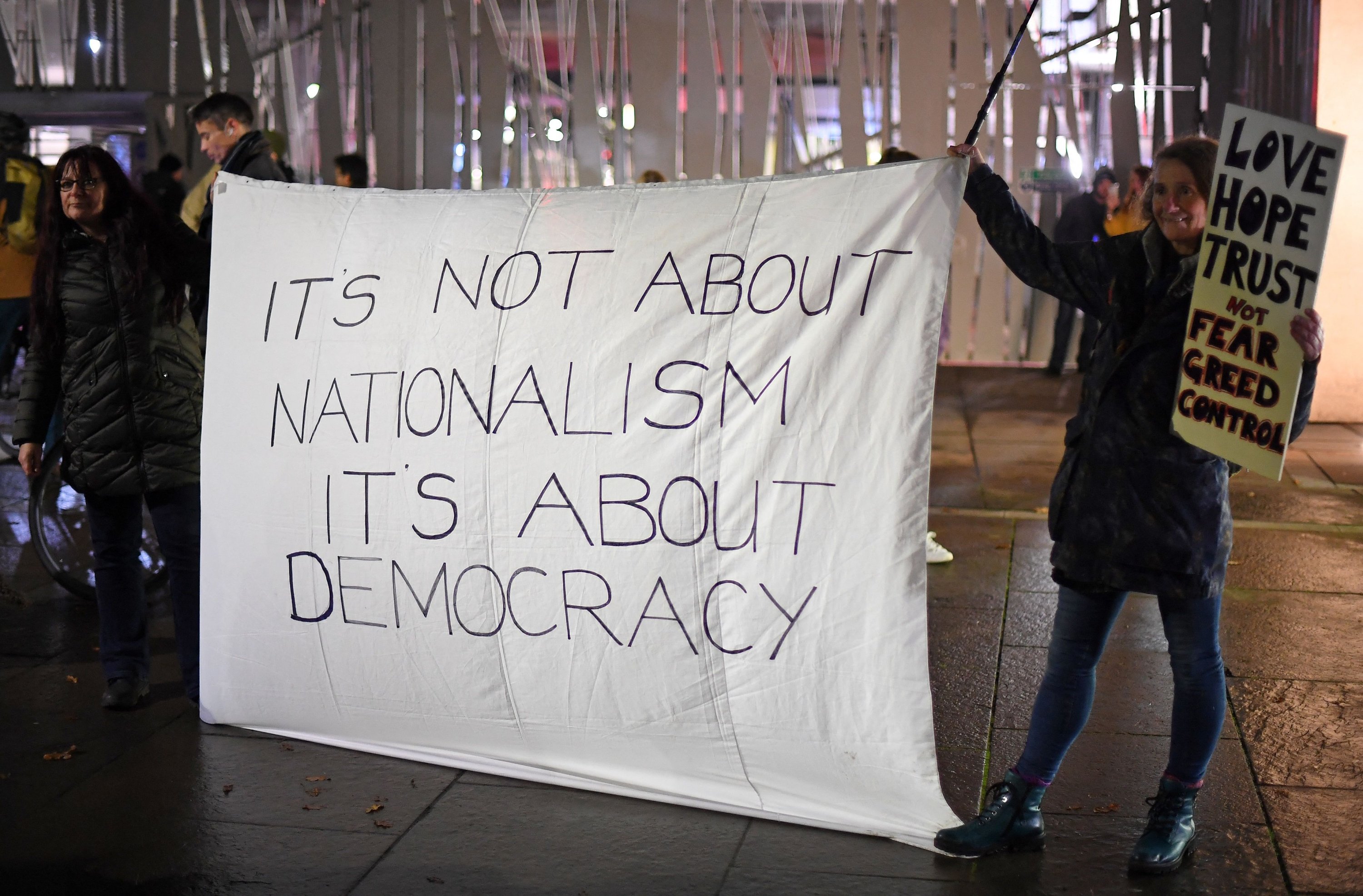Scots need permission for referendum
As an important point, it should be noted that due to legal regulations, the Scots need the permission of the U.K. Parliament to hold another referendum on independence since all matters relating to Scotland and England are reserved by Parliament under the 1998 Scotland Act. Indeed, the Supreme Court of the U.K., with its decision on Nov. 23, 2022, regarding the Scottish regional government’s request to hold an independence referendum on Oct. 19, 2023, held that a second referendum could not be held without the approval of Parliament. In other words, the approval of the British Parliament is mandatory for the Scots to be able to go to a referendum again. Frankly, this is a necessary arrangement in order to prevent the Scots (and others) from constantly holding referendums and to maintain internal stability in the country.
The Conservative Party, the Labour Party and the Liberal Democrat Party, which are the three largest parties in Parliament, completely opposed a new referendum. Likewise, the recently-elected British Prime Minister and leader of the Conservative Party Rishi Sunak, opposes a second referendum, just like his predecessors. Therefore, as long as the current political conditions do not change, an independent state does not appear on the horizon for the Scots.
The EU, to which the Scots attach great importance, opposes a possible separation without an agreement between the parties. As a matter of fact, the political elites of the EU, in their previous statements, emphasized that if Scotland is independent, the EU membership they have dreamed of would not be that easy. Therefore, the rationalist way for the Scots is to realize possible independence completely in accordance with the legal regulations. For this, they must first convince the Conservative Party, which holds the majority in Parliament. Otherwise, a new referendum decision will not be made by Parliament and the Scots will not be able hold a referendum again.Majority favor staying in UK
Also, many surveys conducted by various research companies throughout 2022 show that the overwhelming majority of Scots still favor staying in the U.K. Therefore, contrary to the claims made by separatist Scots, the majority of people do not want independence from the U.K. In this respect, even if a referendum takes place in the near future and a similar result to 2014 occurs, the Scottish independence dream may come to an end.
On the other hand, after the decision on Nov. 23, Nicola Sturgeon, the Scottish Regional Government prime minister and the leader of the separatist Scottish National Party (SNP), described the next general election scheduled to be held no later than January 2025 as a de facto independence referendum. She also announced that a special SNP conference will be held next year to discuss and agree on the details of a proposed referendum. This shows that a group of Scots will insist on the independence demand. At this point, it is also being discussed that the Scots can declare their independence unilaterally.
However, this is not possible and rational because, as someone who followed the 2014 referendum in Edinburgh and Glasgow, I can say that the pro-secession Scots in general oppose such an independence. So the Scots are not as radical as the Catalans, who declared unilateral independence in 2017 but were then forced to back down after the intervention of the Spanish government. For this reason, if the pro-secession Scots take a risky step and make a unilateral declaration of independence, it is in question that London will intervene harshly. More specifically, such a risky decision could lead to violent clashes between London and Edinburgh, as happened between Madrid and Barcelona in 2017. Finally, in the event of such a unilateral separation, there seems to be no state that would take the U.K. against it and accept Scotland as an independent state. [Daily Sabah, November 30 2022]








